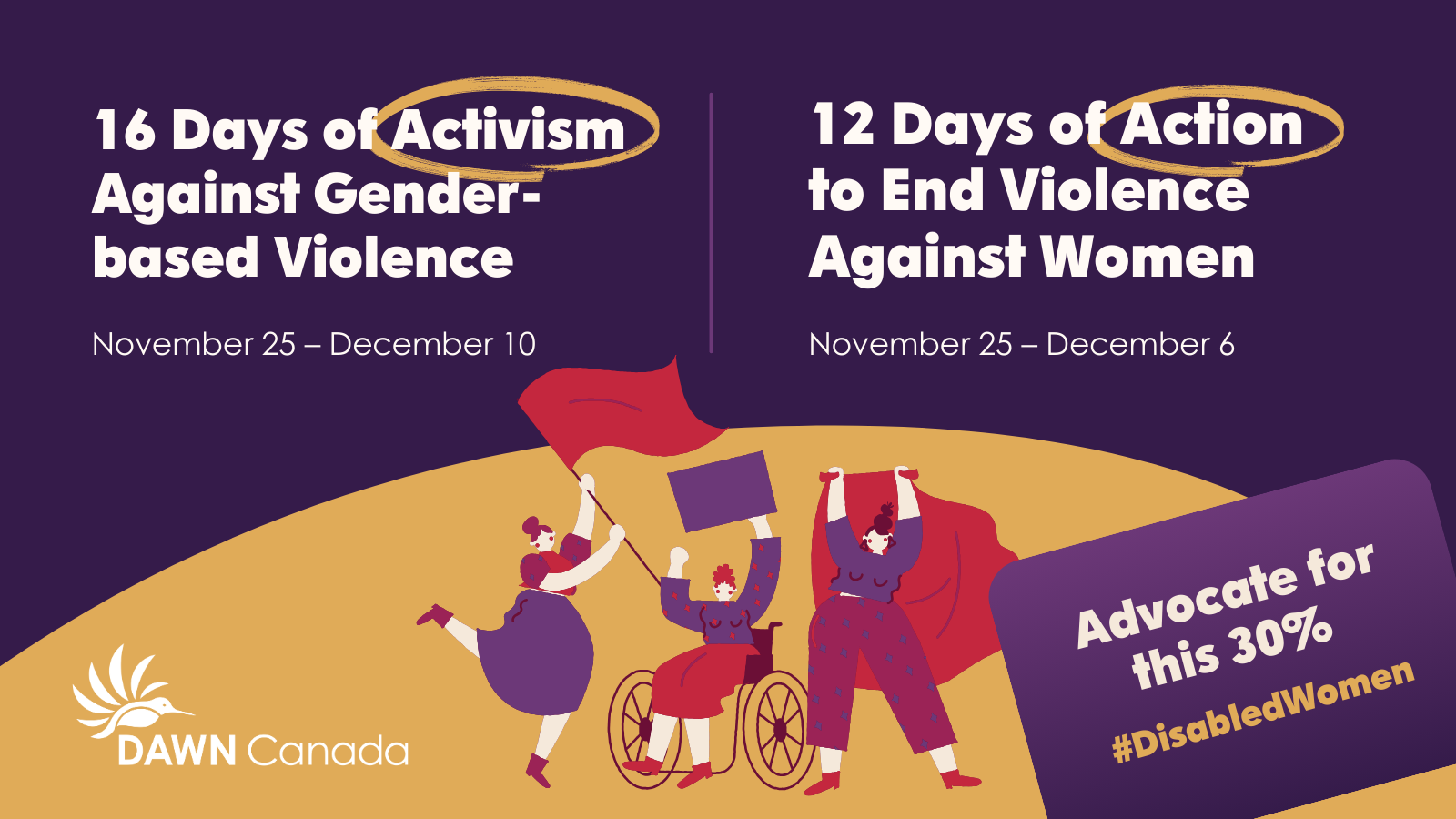
November 25, 2024
Today, on the International Day for the Elimination of Violence against Women, we reflect on the urgent need to address Gender-Based Violence (GBV) and the beginning of the 16 Days of Activism against GBV.
GBV refers to harmful acts directed at individuals based on their gender, including physical, emotional, psychological, and economic abuse. It is a pervasive issue that affects millions, yet it disproportionately impacts women, girls, and gender-diverse people with disabilities, including those who are Deaf.
In Canada, one in three women live with a disability. Many face heightened risks of intimate partner violence, sexual assault, and other forms of abuse, often compounded by systemic barriers that limit their access to care and support. Survivors frequently endure long-term physical, cognitive, and psychological impacts, further restricting their ability to rebuild their lives. Despite these realities, the unique risks faced by disabled women and gender-diverse people, especially those from marginalized communities, remain largely overlooked in research and policy.
Addressing GBV must include a disability-inclusive, intersectional approach. This means creating prevention and response strategies that address the unique barriers disabled women face while tackling the systemic inequities that place them at greater risk.
A Path Forward: Rooting Resilience through Peer Support
At DAWN Canada, we are committed to tackling these challenges through our 10-Year Vision for Change – Root Resilience, Root Change, Root Justice.
The National Action Plan (NAP) to end gender-based violence and the United Nations Sustainable Development Goals (SDGs), both launched in 2020 and extending to 2030, anchor DAWN Canada's vision for change.
With 30% of all women in Canada still experiencing the highest rates of GBV, it is clear that the resources and commitments made by Canada and its Provinces and Territories through the NAP must prioritize women, girls, and gender-diverse people with disabilities, as well as Deaf women.
The SDGs call for an intersectional and sustained commitment by all United Nations bodies and State Parties. It centers women with disabilities as key contributors to achieving the SDGs by 2030.
Take Action to End GBV
As we begin these 16 Days of Activism, we invite you to join us in reimagining care and support systems that leave no one behind. Follow our campaign to learn more about our work, including upcoming reports on GBV and peer support. Sign up for our newsletter and help us turn resilience into power.
Together, we can build a future free from violence.
Our 10-Year Vision For Change
Root Resilience - Represents the strength and recovery that survivors of gender-based violence build through peer support. Peer support offers connection, understanding, and care grounded in shared lived experiences, helping individuals regain their footing and face challenges with renewed confidence.
Root Change - Emphasizes the transformative power of community care systems that have been fractured over time. By reclaiming and strengthening these systems, peer support not only builds individual resilience but also drives meaningful change within communities, creating stronger networks of support and collaboration.
Root Justice - Reflects the broader impact of peer support in dismantling systemic barriers and addressing the isolation they cause. It envisions a healing journey that transcends colonial systems, offering adaptable solutions tailored to diverse needs. Whether by fostering self-healing, supporting long-term recovery, or amplifying future leaders' voices, Root Justice seeks to create equitable and inclusive pathways to a better future.